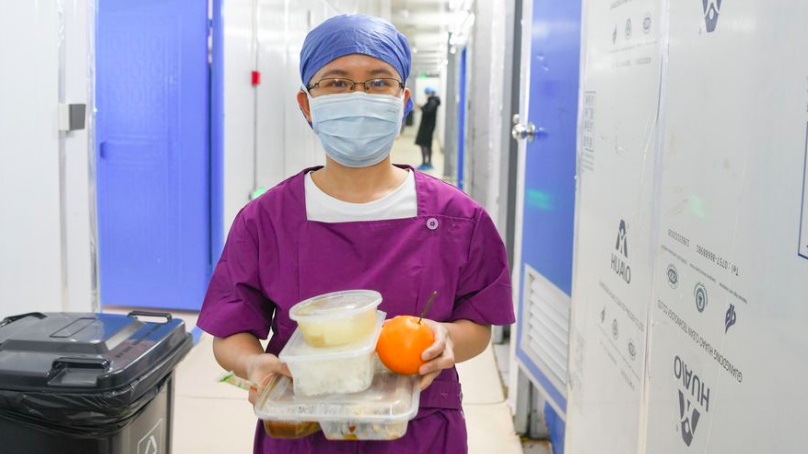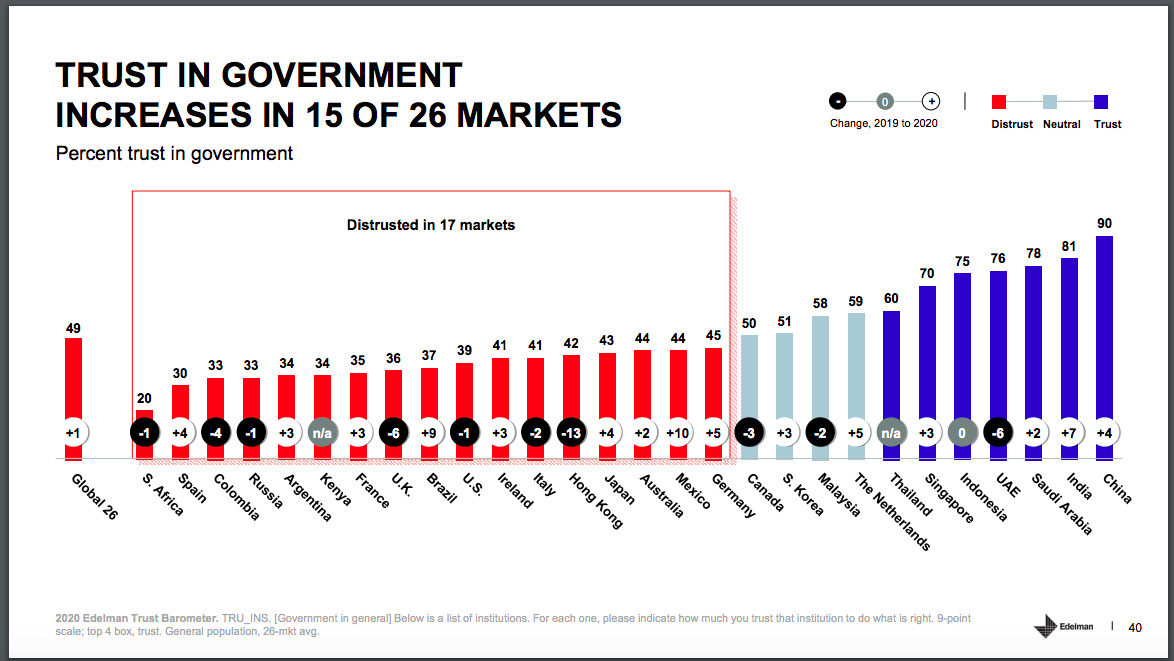
Clinical laboratory staff Li Xiaoying from Guangzhou KingMed Diagnostics Group Co., Ltd. with her meals at Leishenshan Hospital in Wuhan, central China's Hubei Province, March 4, 2020. /Xinhua
Clinical laboratory staff Li Xiaoying from Guangzhou KingMed Diagnostics Group Co., Ltd. with her meals at Leishenshan Hospital in Wuhan, central China's Hubei Province, March 4, 2020. /Xinhua
Editor's note: David Lee is a Beijing-based consultant and author mainly writing about energy, health, international politics and international development. The article reflects the author's opinions, and not necessarily the views of CGTN.
The day Chinese President Xi Jinping visited Wuhan, the capital city of Hubei Province, the city was closing down its last bespoke hospital to treat COVID-19 patients with mild symptoms, marking a significant milestone towards completely defeating the viral outbreak at its very epicenter.
Ironically, as China is making big headways, a story run by the Wall Street Journal titled "Democracy, Dictatorship, Disease: The West takes its turn with coronavirus" effectively lamented that Western democracies would have to face a test with profound implications, i.e., the West's failure to cope where China's "alternative model" succeeds.
However, the wry logic of the WSJ story doesn't hold in the first place, because China is not a dictatorship. Instead, the Chinese society, including its general public and the country's institutions, has proven to be resilient throughout the outbreak response, and strong trust by the people in the institutions has been instrumental in effectively implementing containment measures.
Not incidentally, the latest Trust Barometer Report published by global communications firm Edelman earlier this year has identified that the Chinese people has the strongest trust in their national institutions, as represented by government, business, media, and NGOs, among all markets surveyed. In fact, China's trust index has consecutively topped the Edelman report over the past three years.
The Edelman report, building on solid survey data, provides an objective mental assessment of the Chinese society. Over the years, a virtuous cycle has been in play in the Chinese society. Effective governance promotes socio-economic progress; the population who enjoys better affluence and personal liberty has enhanced trust in the institutions; and the institutions have the willingness and capacity to improve themselves, supported by the trust the general public.

Screenshot of the Edelman report shows China tops the graph of "Trust in Government".
Screenshot of the Edelman report shows China tops the graph of "Trust in Government".
The trust index, as reflected in the survey results, gets to be manifested by the implementation of sweeping emergency response in China, including strict containment, lockdown of large areas, and the unfortunate but necessary curtailing of personal movement. Trust has played a key role throughout the process of extraordinary measure being taken. In return to the population's trust, the victory over the viral outbreak is already in sight.
Instead of empty and arrogant rhetoric that hands out such derogation as dictatorship, concrete survey data shall tell the true story about peoples' real attitudes and feelings.
Not shy about its unique societal features, China has long communicated in confidence with the international community about its development model, willing to share governance best practices. Such communication must take place on equal terms though, without moral judgment made in advance.
As China is defeating the viral outbreak, it is indeed time now for Western countries to prove the strengths of their institutions in mobilizing resources, garnering people's support, and implementing tough but necessary containment and other policies.
Unfair derogation and moral complacency aside, WSJ, as well as like-minded Western media, has good reason to worry. The trust index across major western countries, as compiled by Edelman, has remained low over the years, and this time round it may as well test the downward pressure even further.
Entering the third decade of the 21st century, the global landscape is transforming in significant ways, characterized by the rise of emerging economies led by China. It is high time for all members of the international community to embrace open-mindedness and reject bigotry, so as to address global challenges such as viral outbreak and climate change.
To echo a call by Edelman when it released its 2020 Trust Barometer Report, there is a real opportunity to enhance institutions, particularly government, by building up partnership. The report calls on government to revitalize its role as "an essential partner to business, act and communicate with more transparency and focus on how it can improve people's lives." Well, learn from and partner with where people's trust is the highest can certainly help.
(If you want to contribute and have specific expertise, please contact us at opinions@cgtn.com.)